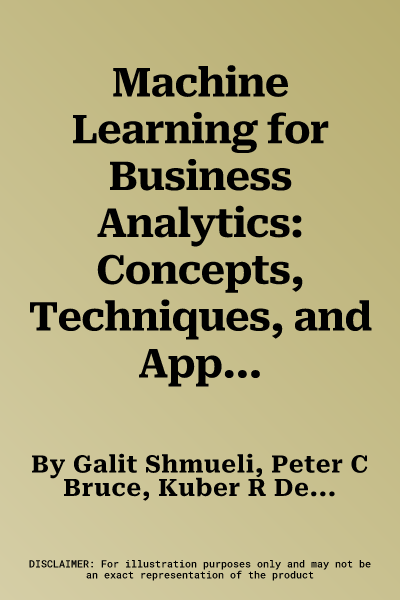Machine learning --also known as data mining or predictive analytics--
is a fundamental part of data science. It is used by organizations in a
wide variety of arenas to turn raw data into actionable information.
Machine Learning for Business Analytics: Concepts, Techniques, and
Applications in Analytic Solver Data Mining provides a comprehensive
introduction and an overview of this methodology. The fourth edition of
this best-selling textbook covers both statistical and machine learning
algorithms for prediction, classification, visualization, dimension
reduction, rule mining, recommendations, clustering, text mining,
experimentation, time series forecasting and network analytics. Along
with hands-on exercises and real-life case studies, it also discusses
managerial and ethical issues for responsible use of machine learning
techniques.
This fourth edition of Machine Learning for Business Analytics also
includes:
- An expanded chapter focused on discussion of deep learning techniques
- A new chapter on experimental feedback techniques including A/B
testing, uplift modeling, and reinforcement learning
- A new chapter on responsible data science
- Updates and new material based on feedback from instructors teaching
MBA, Masters in Business Analytics and related programs,
undergraduate, diploma and executive courses, and from their students
- A full chapter devoted to relevant case studies with more than a dozen
cases demonstrating applications for the machine learning techniques
- End-of-chapter exercises that help readers gauge and expand their
comprehension and competency of the material presented
- A companion website with more than two dozen data sets, and instructor
materials including exercise solutions, slides, and case solutions
This textbook is an ideal resource for upper-level undergraduate and
graduate level courses in data science, predictive analytics, and
business analytics. It is also an excellent reference for analysts,
researchers, and data science practitioners working with quantitative
data in management, finance, marketing, operations management,
information systems, computer science, and information technology.

